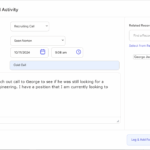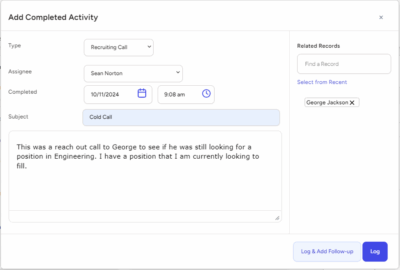As I stated in my previous blog post, it’s becoming more and more difficult to place the unemployed. Some companies are omitting them from the job search process, sight unseen, to the point where they’re telling job seekers not to apply in their job posting and description.
But as we all know, not everybody has lost their job for performance reasons. In actuality, hiring managers know that, too, in most cases; they just don’t want to take the time to sift through a mountain of resumes and applications. There are recruiters who are taking this approach, as well.
What it boils down to is this: companies still want the best of the best, but they don’t want to expend the energy and effort necessary to find them among the ranks of the unemployed. Make no mistake about it, there are superstar candidates who currently do not have a full-time job. Either they were in the wrong place at the wrong time, they made somebody angry that they shouldn’t have (extraordinarily bright individuals often have ideas that don’t mesh with those of upper management), or they’ve decided this is a good time to work for themselves as a consultant… or perhaps even as a contractor.
Question: when do hiring managers use the services of a recruiter?
Answer: when they need to find superstar, A-level candidates, but they don’t have the time, energy, or resources to find those candidates themselves.
By and large, hiring managers don’t have the time, energy, resources, OR desire to find A-level candidates among the ranks of the unemployed. Do they want to see these A-players? If they’re worth their salt as a manager–and as a company–they certainly do. They just need somebody to go find these candidates and present them.
With that in mind, the question becomes this one: do you, as a recruiter, have the desire to find and present A-level players who are unemployed? Or do you find it more desirable to identify and recruit superstar candidates who are currently employed?
On the heels of that: is it a good idea to present an unemployed superstar candidate to your client when the hiring manager has indicated that the unemployed won’t be considered? If you know the candidate will be a valuable addition to the company and make a significant impact on the company’s bottom line, do you view it as your duty to present this candidate and in essence “sell” them to the hiring manager?
All questions to ponder, but unemployed A-level players represent a hidden opportunity for recruiters. How much of an opportunity depends upon a number of factors, most of which are specific to each recruiter’s individual situation (client base, industry or niche, and business model).
However, there’s placement income to be found among the ranks of the unemployed. You just have to know where to look… and have a desire to look there.
Are your clients considering the unemployed for their open positions? Have you placed unemployed candidates recently? I welcome your feedback and comments regarding this topic.








